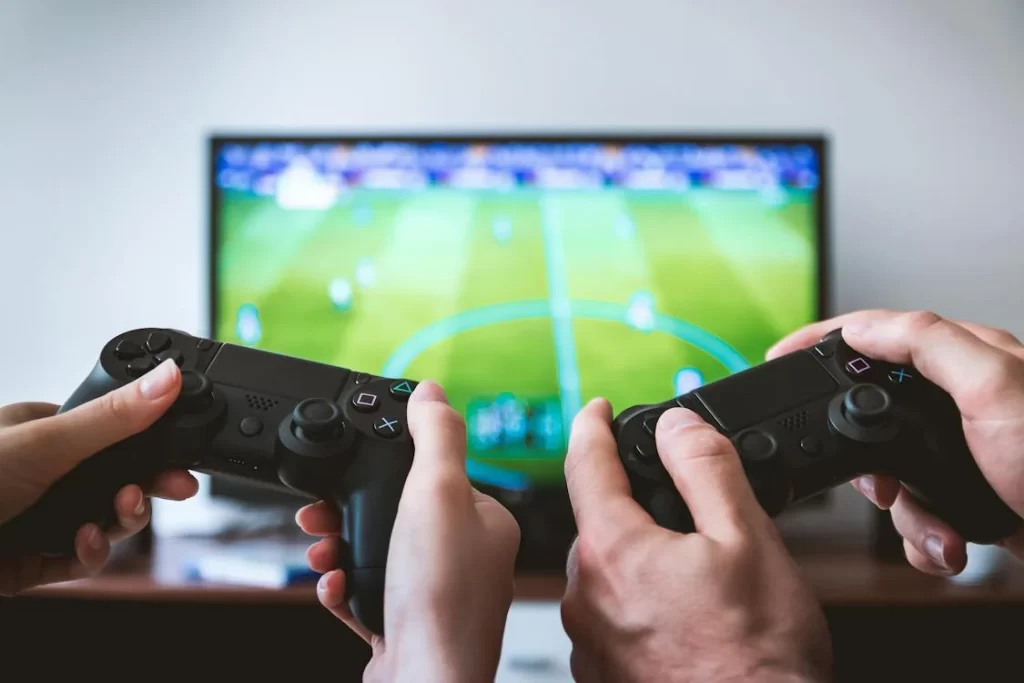
The world of video gaming, including violent video games and online video games, is a thriving industry that captures the interest and imagination of millions of people worldwide. Many people play video games for entertainment and relaxation, but for some, it becomes a serious problem known as video game addiction that significantly impacts their lives. In this article, we will explore the various facets of game addiction, which is a real issue, taking into account its signs, effects on mental health, treatment options available at treatment centers, and preventive measures.
Gaming Addiction
Video game addiction, also known as gaming disorder, is a behavioral addiction characterized by excessive and compulsive gaming, leading to a loss of control over one’s gaming habits. It is akin to other behavioral addictions such as gambling, where the individual becomes preoccupied with gaming and continues to play video games, especially violent video games, despite negative consequences.
What is gaming addiction?
Gaming addiction refers to the uncontrollable urge to play video games, to the extent that it takes precedence over other important aspects of the individual’s life, such as work, education, and relationships.
Signs of gaming addiction
Symptoms of being a game addict may manifest as obsessive ideation about playing games, ignoring responsibilities, withdrawing from social activities, and continued excessive gaming despite adverse effects.
Effects of gaming addiction on mental health
Video game addiction, a form of internet addiction primarily associated with online video games, can lead to detrimental mental health issues like anxiety, depression, and social isolation. The excessive release of dopamine while playing computer games may trigger a release that desensitizes the brain’s reward system, contributing to addiction to video games.
Recognizing the Warning Signs
Grasping how and whether video games, especially computer games and violent video games, may lead to an addiction and recognizing its warning signs is pivotal in addressing and treating gaming addiction effectively.
How does gaming become an addiction?
Gaming, especially online video games, can become an addiction when an individual develops an overwhelming dependence on the thrill of winning a video game, seeking the euphoric highs and emotional escape it provides.
Warning signs of gaming addiction
Signs of video game addiction may manifest as preoccupation with gaming, withdrawal symptoms when not gaming, loss of interest in other activities, and continued excessive screen time.
Screen time and its impact on addiction
Excessive screen time, often associated with gaming addiction, can contribute to physical health issues such as eye strain, disrupted sleep patterns, and sedentary behavior, which may exacerbate the addictive cycle.
Seeking Treatment
Seeking treatment for video game addiction is essential for individuals struggling with this condition. Rehabilitation and treatment centers, like addiction similar treatment facilities, offer a variety of treatment options for those struggling with game addiction, a real problem comparable to drug addiction.
How to treat video game addiction

Treating video game addiction may involve cognitive behavioral therapy, individual or group counseling at treatment facilities, and implementing healthy coping strategies to manage the urge to stop playing video games, as well as withdrawal symptoms.
Counseling for gaming addiction
Counseling provides a supportive environment for individuals to explore the root causes of their gaming addiction, address underlying emotional issues, and develop healthier habits and coping mechanisms.
Role of cognitive behavioral therapy in gaming addiction treatment
Cognitive behavioral therapy aims to identify and rectify negative thought patterns and behaviours associated with internet and video game addiction for promoting long-lasting recovery and avoidance of relapse.
Impact on Daily Life
Game addiction, comparable to drug addiction, can have a profound impact on an individual’s daily life, affecting their relationships, responsibilities, and overall well-being.
Negative consequences of gaming addiction
The signs and symptoms of severe game addiction may include negative impacts like academic or occupational degradation, financial hardships, and negligence of personal hygiene and self-care.
Effects of gaming addiction on personal relationships
The excessive use of video games, specifically computer games, also referred to as gaming addiction, can cause strained relationships with family and friends, ultimately leading to conflicts, lack of communication, and social alienation.
Managing withdrawal symptoms
Managing withdrawal symptoms is an essential part of overcoming the treatment of internet gaming disorder, a real condition that requires the support of trained professionals and the development of healthier coping mechanisms.
Prevention and Awareness
Preventive measures, like understanding when to stop playing video games and raising awareness about gaming addiction, are crucial in mitigating its impact and fostering a healthier gaming culture.
Preventive measures for gaming addiction
To prevent addiction to video games, measures such as the promotion of responsible gaming habits, setting limits on screen time, and engaging in different activities are required for managing a balanced lifestyle.
Educating about the risks of excessive gaming
Educating individuals about the potential risks of excessive internet and video gaming and the signs and symptoms of addiction empowers them to make knowledgeable choices and seek help if required.
World Health Organization’s stance on gaming addiction
The World Health Organization recognizes game addiction as a real mental health condition and emphasizes the importance of providing support and resources at treatment facilities for individuals struggling with this issue.
Q: What are the signs to watch for when it comes to video gaming addiction?
A: Signs of video gaming addiction may include an increasing preoccupation with video game play, withdrawal symptoms when not playing, loss of interest in other activities, and continued excessive game use despite negative consequences.
Q: What are the effects of video game addiction?
A: Video game addiction can lead to various effects such as social isolation, lack of physical activity, poor academic or work performance, and potential physical health problems due to prolonged gaming sessions.
Q: What is internet gaming disorder?
A: Internet gaming disorder is a condition characterized by the excessive and problematic use of online games, leading to significant impairment in various areas of life, such as social, occupational, or educational functioning.
Q: How can one identify if they are addicted to video games?
A: If a person experiences distress or impairment in functioning due to excessive gaming, continues to play despite negative consequences, and has an inability to control or reduce game use, they may be addicted to video games.
Q: What are the symptoms of video game addiction?
A: Symptoms may include preoccupation with gaming, withdrawal symptoms when not playing, tolerance to the games, unsuccessful attempts to stop or reduce game play, loss of interest in other activities, and continued excessive gaming despite negative outcomes.
Q: What is the recommended treatment for video gaming addiction?
A: Treatment approaches for video gaming addiction may include individual or group therapy, cognitive-behavioral therapy, family therapy, and participation in a treatment program specifically designed for gaming addiction.
Q: Is video game addiction considered a real issue?
A: Yes, video game addiction is recognized as a real issue, and it has been included in the International Classification of Diseases as “gaming disorder” to address the growing concern about excessive and problematic video game use.
Q: What role does excessive video game playing play in causing addiction?
A: Excessive video game playing can lead to addiction when it becomes the primary focus of a person’s life, leading to functional impairment, withdrawal symptoms, and continued use despite negative consequences.
Q: What kind of research shows the impact of video game addiction?
A: Research shows that video game addiction can have detrimental effects on mental health, social relationships, academic or work performance, and physical health, highlighting the importance of addressing this issue.
Q: Is cognitive-behavioral therapy an effective approach for treating video gaming addiction?
A: Yes, cognitive-behavioral therapy has shown effectiveness in addressing video gaming addiction by helping individuals recognize and change unhealthy gaming patterns, manage cravings, and develop healthy coping strategies.










